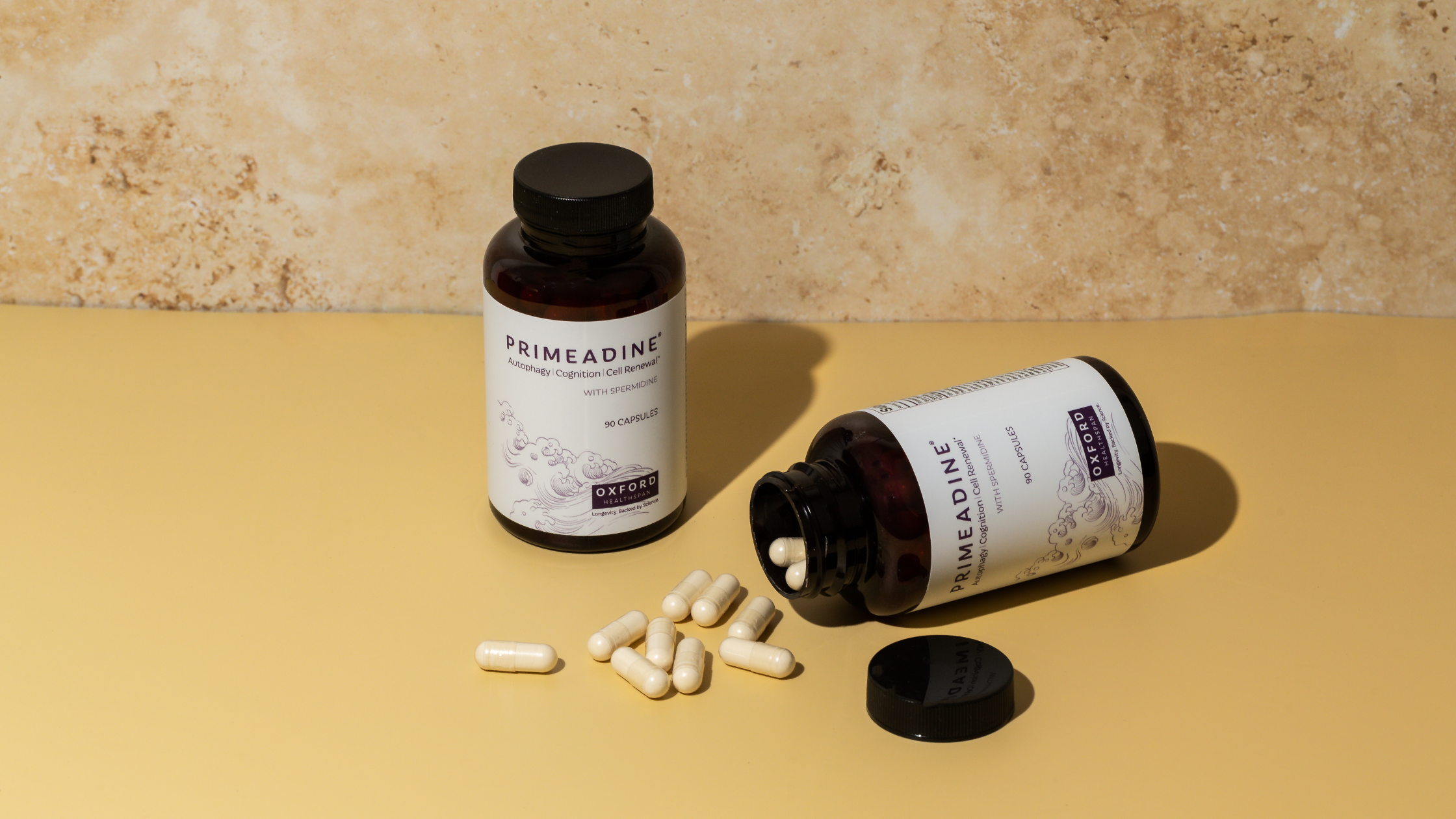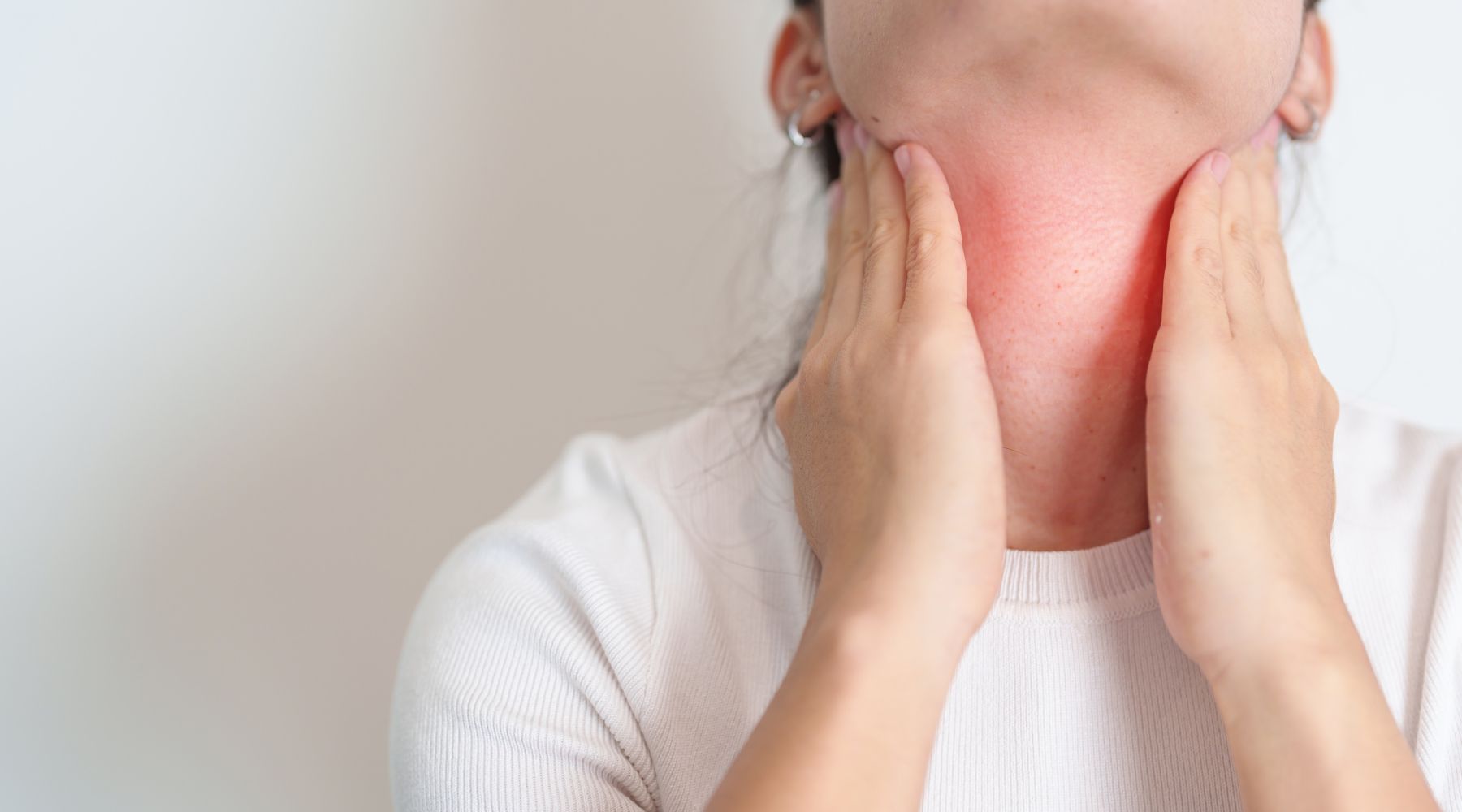Menopause is a natural phase in a woman's life, marking the end of her reproductive years. This transition, usually occurring between the ages of 45 and 55, brings a variety of symptoms that can significantly impact quality of life. Hot flashes, night sweats, mood swings, and sleep disturbances are just a few of the challenges women may face. While hormone replacement therapy (HRT) and lifestyle changes are common approaches to managing these symptoms, research suggests that spermidine, a naturally occurring polyamine found in all living organisms, might offer additional benefits.
What is menopause?
Menopause is a natural process that every woman experiences, typically between 45-55 years of age, defined as the cessation of menstrual periods. It results from a decline in the ovaries' production of estrogen and progesterone, leading to various physiological changes. Common symptoms of menopause include:
- Hot flashes and night sweats
- Mood swings and irritability
- Sleep disturbances
- Vaginal dryness
- Reduced libido
- Weight gain
- Thinning hair and dry skin
These symptoms can range from mild to severe, often affecting daily activities and overall well-being.
Spermidine and the menopause: how might it help?
What is spermidine?
Spermidine is a polyamine compound found in various foods such as soybeans, aged cheese, mushrooms, whole grains, and certain vegetables. It plays a critical role in cellular processes, including cell growth, proliferation, and apoptosis. In particularly, spermidine has been shown to support overall cellular health and longevity by enhancing autophagy, a process that helps clear damaged cells and maintain cellular homeostasis. Given many of the symptoms associated with menopause arise from a disruption in homeostasis, spermidine may have the potential to alleviate such symptoms.
Hormonal balance
Menopause symptoms primarily result from hormonal imbalances, particularly the decline in estrogen levels. Research suggests that spermidine may offer relief by influencing key hormones involved in the menopausal transition. For instance, a compelling study evidenced 30 days of spermidine supplementation increased estradiol levels in some women by an impressive 37% [1]. Estradiol, the primary and most potent form of estrogen in humans, plays a crucial role in regulating the female reproductive system and influencing various bodily functions. It helps alleviate menopausal symptoms like hot flushes, vaginal dryness, and mood swings, while also supporting bone health, cardiovascular function, and cognitive processes.
The same study found that spermidine improved the ratio of estrogen to progesterone, potentially mitigating the effects of estrogen dominance often experienced during peri-menopause. These hormonal shifts could translate to significant relief from common menopausal symptoms. What's more, it seems spermidine's benefits to hormonal balance don't stop at estrogen.
Finally, this study also showed a 58% reduction in cortisol levels, named the body's 'stress hormone', after 30 days of supplementation. Lower cortisol could be conducive to improved sleep quality and reduced stress-related symptoms - both common challenges during menopause. Furthermore, spermidine supplementation was associated with an 88% increase in DHEA levels in women. DHEA, often referred to as the 'youth hormone', could potentially boost energy levels and libido, addressing two more frequent concerns of menopausal women.
It is important to keep in mind that while these findings are promising, more extensive, longitudinal human studies are necessary to confirm these effects on menopause symptoms. Nevertheless, the current evidence suggests that spermidine supplementation could be a valuable tool in managing the hormonal changes and associated symptoms of menopause.
Another important factor for hormonal balance is spermidine's ability to promote autophagy, the body's vital cellular "clean up" and recycling process. Therefore it could indirectly regulate hormonal balance by enhancing the physiological ability to cope with the sudden change; improving the body's resilience to hormonal fluctuations through supporting overall cellular and metabolic health. For instance, research has evidenced significant improvements in hair [2,3] and skin [4] health and resilience attributable to spermidine and its effect on the autophagy process. Thinning hair and dry skin are common symptoms of hormonal imbalance that can affect confidence and well-being in women experiencing menopause. Therefore, spermidine has potential to alleviate these symptoms and thus, improve quality of life.
Cognitive function and mood regulation
Mood swings, anxiety, and depression are common during menopause and can be influenced by the balance of the gut microbiome (the bacteria in the gut) due to the bidirectional communication of the gut-brain axis. Spermidine supplementation can reduce inflammation and oxidative stress in the gut, contributing to a healthier gut environment [5].
This improvement in gut health may support a more stable and diverse gut microbiome, which is crucial during menopause, as a balanced microbiome can positively influence mood regulation and stress response. Moreover, a healthier gut environment can promote the production of neurotransmitters like serotonin, a significant portion of which is produced in the gut [6], thereby helping to alleviate mood swings and anxiety. A well-balanced gut microbiome facilitated by spermidine may assist in regulating hormone levels, potentially reducing the severity of hormonal imbalances that contribute to menopausal symptoms.
Improved sleep quality
Sleep disturbances are a significant issue for menopausal women, affecting mood and daily functioning. These disturbances often result from disruptions in the body’s circadian rhythm, which governs sleep-wake cycles. Spermidine supplementation has been shown to stabilize circadian rhythms in aging models, improving sleep quality and duration [7]. This suggests that spermidine could be beneficial for menopausal women experiencing sleep disruptions. Additionally, by promoting gut health, spermidine may support the production of neurotransmitters essential for melatonin synthesis, further aiding sleep regulation during menopause [8].
Anti-inflammatory effects
Chronic inflammation is a common issue during menopause, contributing to symptoms like joint pain, fatigue, and mood swings. Spermidine has been shown to exhibit significant anti-inflammatory properties, primarily by inhibiting pro-inflammatory cytokines and reducing oxidative stress [9], both of which are key contributors to chronic inflammation.
Conclusion
Menopause is a challenging transition that brings various uncomfortable physical and emotional symptoms. While traditional treatments like hormone replacement therapy remain effective, exploring additional options like spermidine can offer further relief. By promoting autophagy, reducing inflammation, supporting hormonal balance, and improving sleep and cognitive function, spermidine presents a promising approach to managing menopause symptoms. Embracing a holistic approach that includes spermidine-rich foods or supplements may help enhance quality of life during menopause.
References





Leave a comment
All comments are moderated before being published.
This site is protected by hCaptcha and the hCaptcha Privacy Policy and Terms of Service apply.